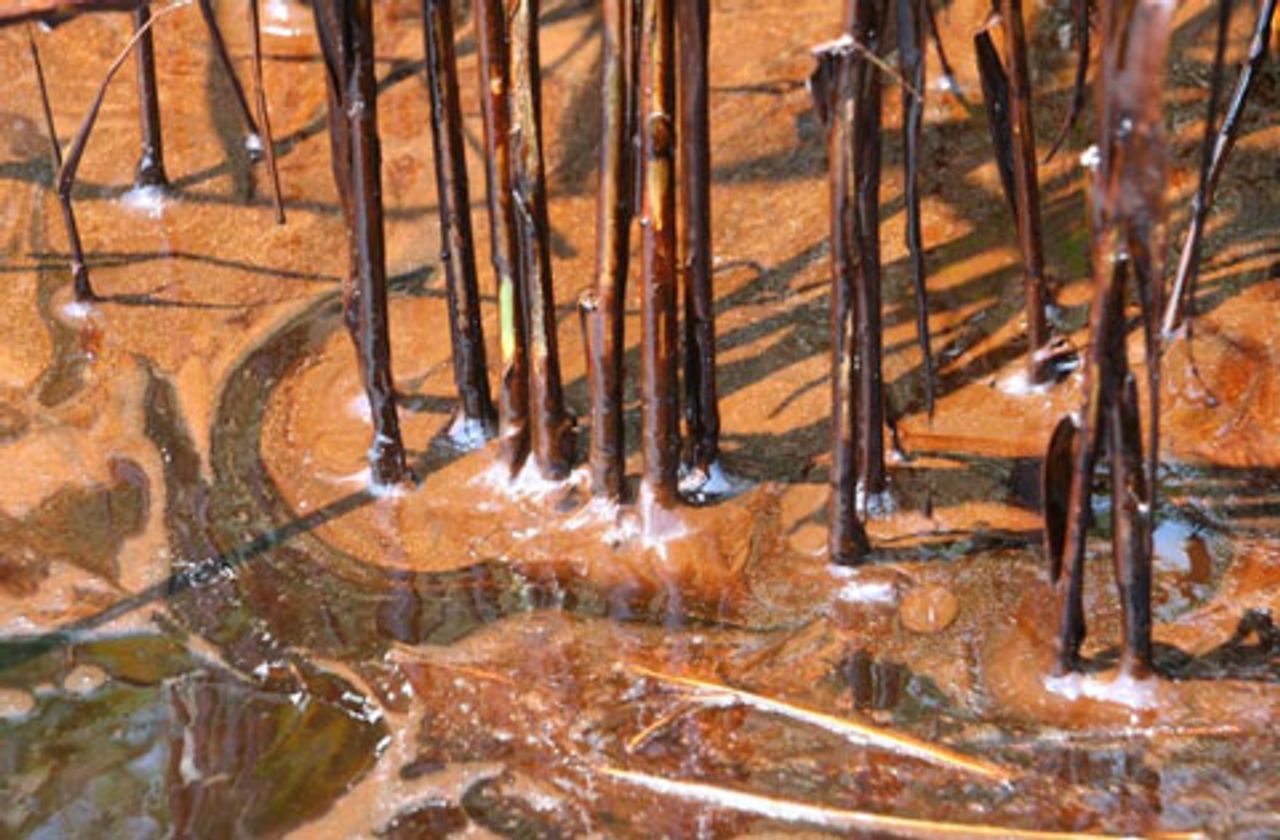 Oil from the Deepwater Horizon disaster has reached the shoreline of Louisiana Photo credit: Plaquemines Parish Government
Oil from the Deepwater Horizon disaster has reached the shoreline of Louisiana Photo credit: Plaquemines Parish GovernmentThe Obama administration said Thursday afternoon that it sent a letter to BP asking it to be more “transparent” in its response to the spill, and to make available the live video feed of oil spilling from the Deepwater Horizon.
The move came as the administration came under increased pressure from scientists, environmental groups, and the entire population of the Gulf Coast, as sheets of oil hit the Louisiana wetlands, overwhelming local response efforts.
The administration, together with BP, has consistently refused to provide an accurate estimate of the volume of oil spilling into the Gulf of Mexico from the Deepwater Horizon site. On Thursday a BP spokesperson admitted that the spill was leaking more than 5,000 barrels a day, the previous estimate used by the government and BP.
When asked whether BP’s admission changes the government’s estimate, White House Press Secretary Robert Gibbs said, “I don’t have an updated estimate,” adding that “our response is not predicated” on the amount of oil being released.
When asked by a reporter whether the government was deliberately trying to conceal the amount of oil leaking from the spill, Gibbs replied, “The notion of a cover-up is ridiculous.”
Based on a section of video released last week, scientists estimated that about 70,000 barrels of oil were spilling out daily, 14 times the official estimate.
The New York Times carried a front-page interview Thursday with Richard Steiner, a marine conservation expert who spoke to the WSWS in Venice, Louisiana last week. The Times article noted growing criticism by scientists of the Obama administration’s handling of the oil spill response.
Commenting on the Times piece and the White House response, Steiner told the WSWS, “The government is just trying to preserve image and its political agenda; they’re doing everything they can to defend their program for offshore drilling.”
Steiner said that the Obama administration’s continued support for its offshore drilling program was leading it into a political crisis. “The house is about to implode, as it should,” he said.
A BP spokesperson said that the effort and equipment necessary to make measurements would obstruct efforts to stop the spill, which he said was the “first priority.”
Dr. Ian R. MacDonald of Florida State University said he disagrees with this assessment. “Accurate measurements of the spill are vital, and everybody in the science community thinks they are vital,” he said.
“It is easy to understand, from a legal liability standpoint, why BP would not want to release the figures,” he said, meaning that it is in BP’s best interest to conceal the amount of oil spilling into the Gulf. “BP will not take these measurements unless the government forces them to,” MacDonald said.
Larry Schweiger, president and CEO of the National Wildlife Federation, said in congressional testimony Wednesday that his organization has called on the government to ensure that measurements of the spill become available.
“Today the National Wildlife Federation joins with 10 other conservation groups in writing President Obama to urge that the federal government immediately take over environmental monitoring, testing and public safety,” he said.
The government has deferred nearly all ecological observations to BP, and waited two weeks to dispatch the first science boat to the scene—the small observation vessel Pelican.
Meanwhile, anecdotal evidence of health problems caused by the spill has continued to pile up. Major newspapers carried reports from all over the Gulf of residents who have become sick from the spill. When WSWS reporters visited southern Louisiana last week, they gathered similar accounts.
Walter, an offshore production operator in the Gulf of Mexico, said he was concerned about the toxicity of the dispersants being sprayed on the spill. “They’ve been spraying dispersant near the rig I work at for the past five days, and for the past three days I’ve had a sore throat from it,” he said. “I’ve been around crude oil daily for the past six years, but I’ve never been sick from it before. This dispersant stuff is pretty bad.”
The EPA said Thursday that it has notified BP that it has 24 hours to switch to a less toxic dispersant product, in light of health concerns raised by its current dispersant. The move came the day after government scientists confirmed that a portion of the spill has entered the “loop current,” which could take the spill around the coast of Florida and beyond.
A thick, orange-tinted sludge continued to flow into the Mississippi River delta on Thursday. The heavy coatings of oil appeared even in areas protected by booms, leading observers to conclude that it was passing underneath them.
